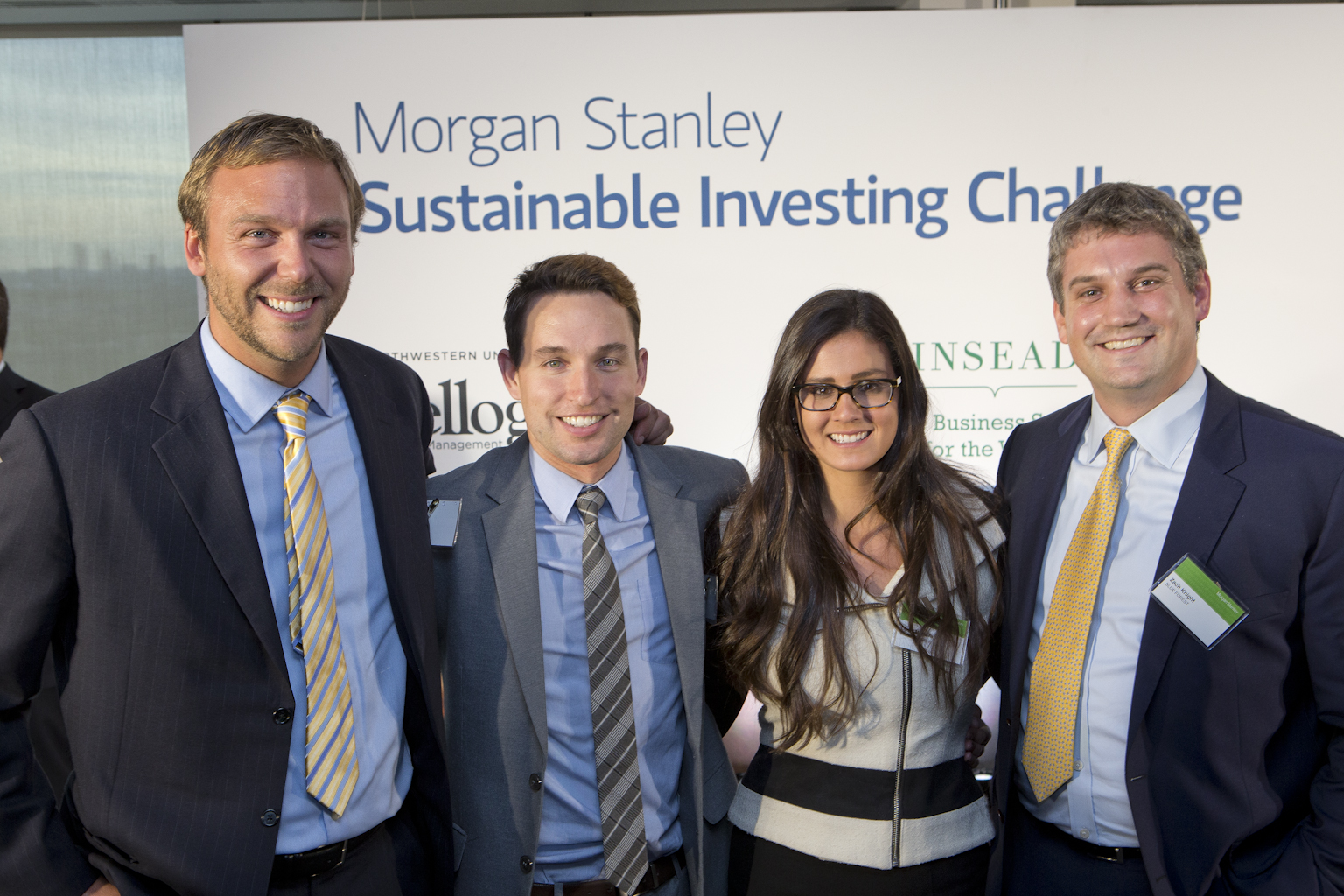A proposal to address California’s historic drought and wildfire risk took first place in the fifth annual Morgan Stanley Sustainable Investing Challenge.
(Editor’s Note: This article was updated on April 20, 2015. See original article below.)
A team of business students from Haas School of Business at UC Berkeley won the competition’s $10,000 prize with its plan to fund strategic forest thinning in Northern California that distributes the costs of forest management while only requiring stakeholders, including public utilities and government agencies, to pay for the benefits they receive. The project would raise funds by selling ”Blue Forest Conservation Notes” to investors, who would earn returns only if goals such as increases in water flow and quality, fewer homes destroyed by wildfires, and increased agricultural outputs, were achieved.
“The Sustainable Investing Challenge is a call to the next generation of finance professionals to match their business acumen and investment creativity with their passion for producing a positive impact, and this year’s participants answered the call with great success,” said Audrey Choi, CEO of the Morgan Stanley Institute for Sustainable Investing. “This collision of pragmatism and passion, and idealism and analytics is so unique – it really is what this sector is about.”
The Haas team of Zach Knight, Leigh Madeira, Chad Reed, and Nick Wobbrock beat out nine other global finalists, and 124 other entrants, in the competition to create institutional-quality investment products and vehicles that target positive environmental or social impact and competitive financial returns.
“This competition channels the growing desire in graduate students, globally, to use the tools of capital and capitalism to shape our environment and society for the better,” said Dave Chen, Adjunct Faculty of Finance at Kellogg School of Management and CEO of Equilibrium Capital Group.
A runner up award of $5000 went to the team of Gustavo Bernal, Leslie Chua, Animesh Pant and Oscar Posada from the National University of Singapore Business School. The second place winner proposed a real estate fund aimed at supporting the return of rural Colombians, displaced by decades of war, to their agricultural lands.
[seperator style=”style1″]ORIGINAL ARTICLE[/seperator]
Teams from 10 business schools around the world are in London this week to pitch investors on their proposals to use finance to help tackle fundamental challenges in energy, health, agriculture, water, and economic inequality.
The MBA teams are finalists in the Morgan Stanley Sustainable Investing Challenge, now in its fifth year. The call to action from the bank, along with co-hosts Kellogg School of Management and INSEAD, was unorthodox and threefold: institutional quality investment vehicles, competitive financial returns, and positive social or environmental impacts.
The students responded with proposals to solve some of the toughest issues on the global agenda. One real estate fund proposes to reconnect millions of rural Colombians, displaced by decades of war, to their lost agriculture lands. Another introduces a social impact bond to shift risk away from cash-strapped governments and risk averse utilities to investors, to address California’s historic drought and ongoing threat from forest fires. A third proposes to finance the start up capital costs necessary to fuel the expansion of medical clinics across rural Morocco—where access to doctors is disproportionately scarce.
More than 125 teams from 27 countries answered the call. The 10 finalists, from five countries, include teams from the Haas School of Business at UC Berkeley, the National University of Singapore, INSEAD, and Kellogg, which founded the event in 2011. They will pitch investment funds and products targeting impact on three different continents. Combined, the teams are seeking nearly half a billion dollars in investment for their conceptual vehicles. The finalists’ prospectuses were made available to Impact Alpha by Morgan Stanley.
“We’re seeing incredible interest from around the world, with ambition for positive change on a global scale,” Audrey Choi, head of Morgan Stanley’s Institute for Sustainable Investing, told Impact Alpha. “We’re encouraging the next generation of financial professionals to think about how to drive positive change at scale.” Morgan Stanley’s research has indicated that millennials are taking the lead in aligning their investments with their values.
The top two teams in Friday’s final competition will share $15,000 in prizes. More importantly, they will work with seasoned investors who can help take their ideas to market.
“We have several teams from past years making it real,” said Dave Chen, CEO of Equilibrium Capital and a co-founder of the competition. Chen is an early investor in Fresh Coast Capital, last year’s winner.
Fresh Coast proposed a fund to revitalize postindustrial communities in the United States by reviving brownfields—abandoned, contaminated properties that impede redevelopment efforts. The fund proposed to lease brownfields from municipalities and private investors, plant poplar tree farms scientifically proven to remediate contamination, and generate cash and value for investors through tree harvesting, land appreciation, and monetization of ecosystem services. The founders have been named Kellogg Young Impact Scholars and are semi-finalists for the coveted Echoing Green Fellowship.
“The students teams have focused on the massive macro trends that are creating opportunities for investment,” Choi said.
[seperator style=”style1″]DISCLOSURE[/seperator]
Equilibrium Capital is a sponsor of ImpactAlpha.











